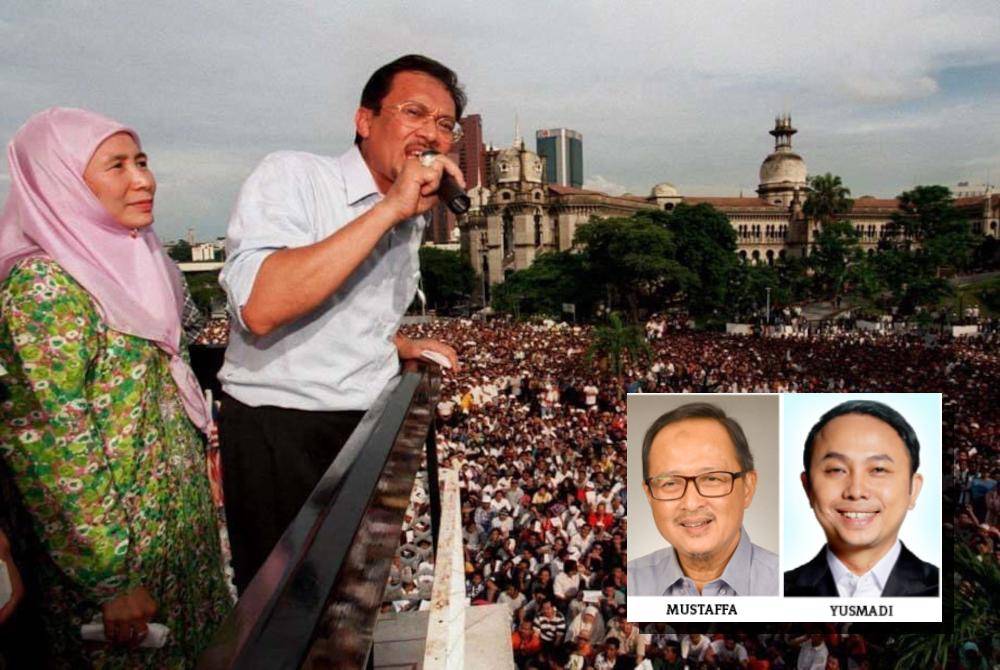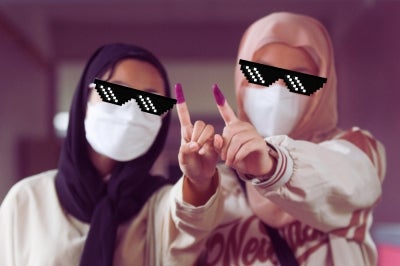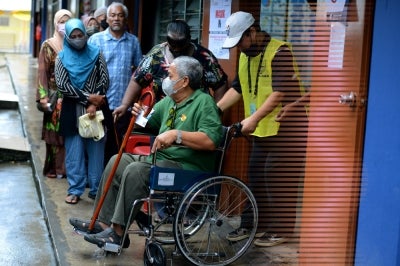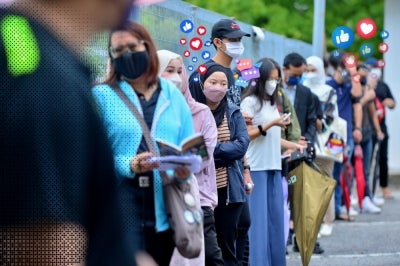Reflections on 25 years: Can PKR realise its reform goals?
With over a million members, PKR has undergone political maturity despite post-GE14 internal challenges.

On April 4, PKR marked its 25th anniversary.
Founded following Datuk Seri Anwar Ibrahim's dismissal as Deputy Prime Minister on September 2, 1998, and as Umno Deputy President shortly thereafter, PKR has played a significant role in Malaysian politics, advocating for reform.
Originally established as Parti Keadilan Nasional (Keadilan) in 1999 before rebranding as PKR, the party has shaped Malaysian politics as a prominent opposition force.
Anwar, a key Opposition figure in Malaysia and now the 10th Prime Minister (PMX) following the 15th General Election (GE15), has ensured PKR's relevance in the political landscape.
The party has notably strengthened its presence in Selangor since GE12, contributing to Pakatan Rakyat's (PR) dominance in Selangor, Penang, and Kelantan, which led to Barisan Nasional's (BN) failure to secure a two-thirds majority in Parliament for the first time.
Despite PR's dissolution, PKR continued its Opposition role under the Pakatan Harapan (PH) coalition, securing victory over BN in GE14 with the support of Tun Dr Mahathir Mohamad, who led PH at the time.
With over a million members, PKR has undergone political maturity despite post-GE14 internal challenges.
However, as PKR gears up for a special event on April 21 to celebrate its 25th anniversary, Pasir Gudang MP Hassan Karim questions the party's commitment to its long-touted reform agenda.
In an open letter, Hassan raised six critical questions regarding the party's current direction, commitment to institutional reforms, and strategies to garner support from Malay Muslim voters within PH.
Former Umno Youth Chief Khairy Jamaluddin commended Hassan's questions as bold, precise, and relevant, echoing concerns about PKR's focus on securing Malay voter support while upholding its reform agenda.
Khairy highlighted the dilemma PKR faces in balancing these priorities, particularly in light of its role in the Unity Government.
"The question is, can PKR rely on Umno to regain Malay voter support for the Unity Government when the series of state elections and by-elections post-GE15 showed PN's domination over that segment?
"Anyway, I believe PKR and PH will not be able to hold Putrajaya without the support of the 'four inches' segment of Malay voters.
"This situation poses the biggest dilemma for PKR because the party is now seen to compromise with parties in the Madani Government, especially Umno, on issues involving integrity.
"It raises the question of whether PKR no longer upholds the spirit of reform that was heralded at the party's inception?" said Khairy.
Responding to Khairy's views, former PKR vice president Mustaffa Kamil Ayub acknowledged the need for compromise to ensure government stability.
Still, he claimed that PKR remains committed to its reform agenda, albeit with a more cautious approach.
"I believe the reform agenda is still progressing quite smoothly, although there may be some sluggishness in certain sectors.
"With a remaining term of one and a half years for the administration of the Madani Government, I believe that PMX will ensure that the reform agenda continues to occur, although it may not be drastic.
"As the saying goes, ‘ikan biar tertangkap, air jangan keruh’," he said.
Former Balik Pulau MP Mohd Yusmadi Mohd Yusoff rejected the notion that PKR compromises its principles, emphasising the importance of a strategic approach to reform implementation.
"To remain relevant, PKR must have a solid strategy to ensure how the reform agenda is implemented wisely.
"Therefore, PMX is not compromising but instead using a wise approach by consensus with parties in the Madani Government in managing the reform agenda on a larger framework to achieve a greater agenda," he said.
Looking ahead to GE16, Mustaffa and Yusmadi believe that engaging grassroots support and effectively implementing the Madani Malaysia economic model could sway Malay voter support toward the Unity Government.
Ultimately, the success of PKR and the Unity Government hinges on their ability to govern effectively, advance reform, and address the concerns of all Malaysians.
Download Sinar Daily application.Click Here!















